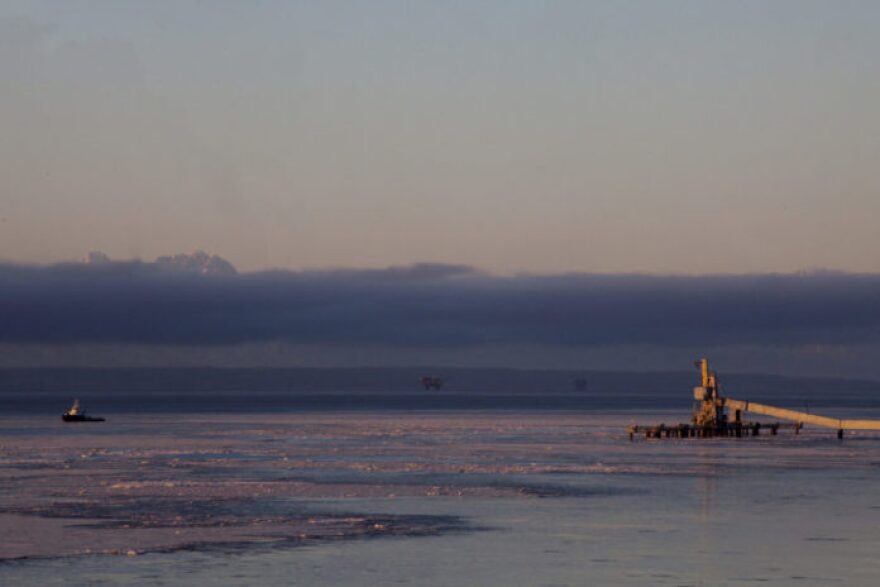The federal government won’t auction off tracts for oil and gas drilling in Cook Inlet this year. The Department of the Interior announced this week it is canceling a pending auction for up to 1 million acres of leases, capping a tumultuous timeline of stopping and starting for the proposed plan.
In a statement, department spokesperson Melissa Schwartz said the cancelation is due to a lack of interest from the industry.
Kara Moriarty said she finds that logic baffling. She’s president of the Alaska Oil and Gas Association. And she said companies don’t usually let on as to whether they’ll participate or not. She doesn’t even know.
“Participating in lease sales is a highly guarded secret, if you will, because companies don’t want to tip their hand to their competition that they might be interested in an area," she said.
She said any lack of comments to the department from oil and gas companies doesn’t necessarily signal a lack of interest.
“The only way to find out what the true interest is is by holding a lease sale," Moriarty said. "There’s nothing lost if nobody shows. And that’s happened in the past.”
Opponents of the now-canceled sale, on the other hand, did get out thousands of comments submitted to the feds — almost 93,000, to be exact, said Liz Mering. She’s advocacy director for Cook Inletkeeper, which has led a fervent campaign against the sale, including an art sale to raise money and awareness for efforts last December.
Mering said those efforts paid off.
“It’s an amazing feeling," she said. "It’s just so nice to have a win and to remind people that everybody’s actions and everybody commenting and taking time out of their day to testify and do all of the things that our community does to advocate for the future we want in Cook Inlet do really matter.”
She said the cited lack of industry interest doesn't really come as a surprise. The feds canceled Cook Inlet lease sales due to little industry interest in 2006, 2008 and 2010.
“However, we also hope the industry, as well, is looking at the strong local opposition and the serious concerns and the fact that people aren’t going to be quiet," Mering said. "And so, at the same time also thinking that could have certainly played a role, as well.”
The Biden Administration first hit pause on the lease sale in early 2021, part of a broader order geared at combating climate change. That process resumed following a lawsuit from Alaska and several other states, though the federal government is always able to cancel lease sales even once environmental impact statements are filed.
Bigger picture, Mering said she hopes for more permanent rejections of oil and gas in Cook Inlet. The order doesn’t necessarily cancel all lease sales in the inlet – just this one.
She also said it’s important to note that the sale wouldn’t have impacted gas prices for years to come. Alaska politicians, including Gov. Mike Dunleavy and U. S. Sen. Dan Sullivan, have said on social media the move shows a disregard for the high gasoline prices consumers are currently paying at the pump.
Moriarty, with the industry group, said the decision sends a message that the Biden Administration isn’t interested in oil and gas development coming from American sources. The department also announced it’s not holding two lease sales in the Gulf of Mexico.
“It just doesn't make sense as to why you wouldn’t want your future oil and gas — for energy security, as well as for Alaska, for Alaksan consumers, especially, when we’re talking about Cook Inlet — to come from America," Moriarty said.
And she said without federal leases, the industry will turn the focus to state leases in Cook Inlet. The state of Alaska auctioned off 3.3 million acres of oil and gas leases in Cook Inlet last June, resulting in eight successful bids from two different companies.




